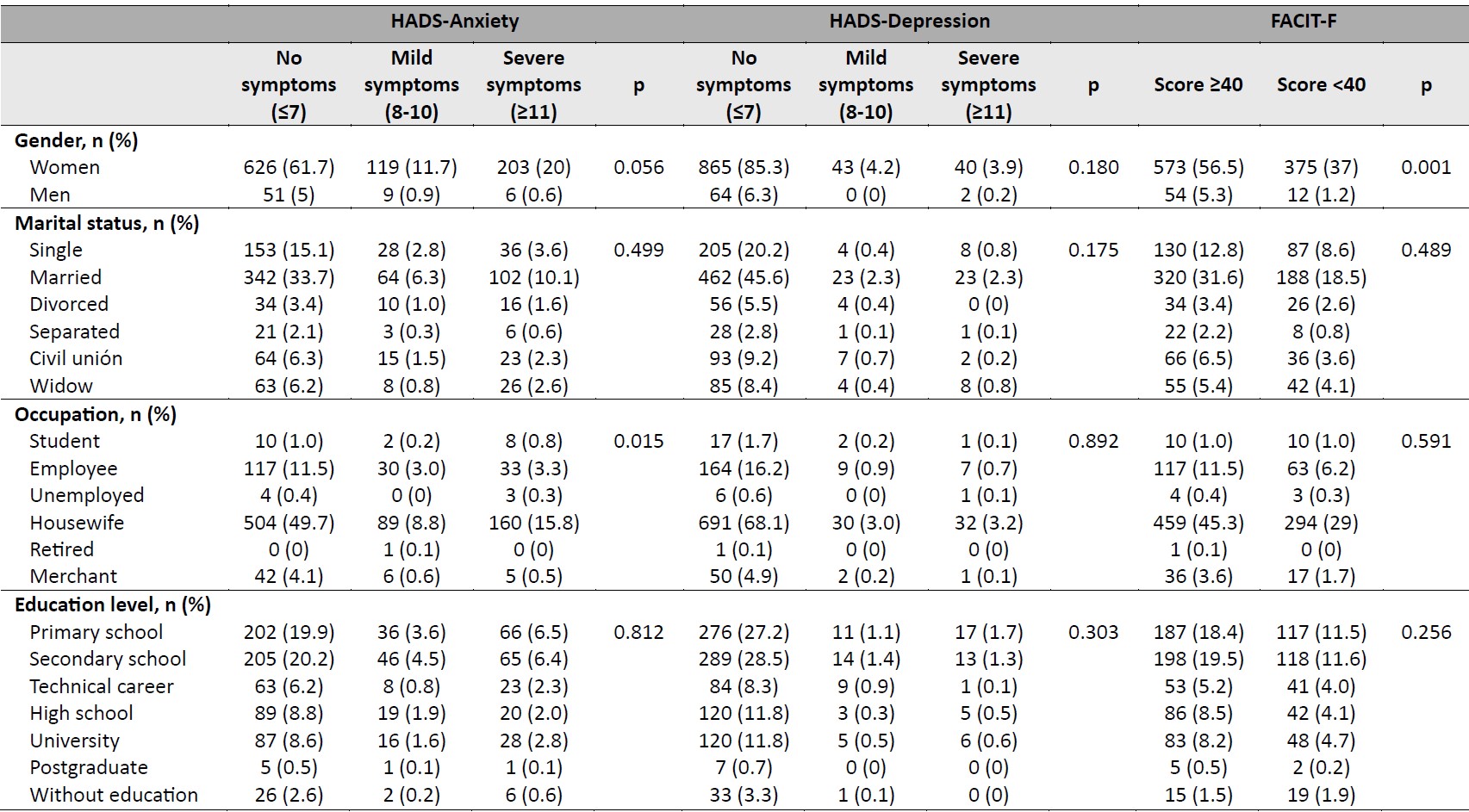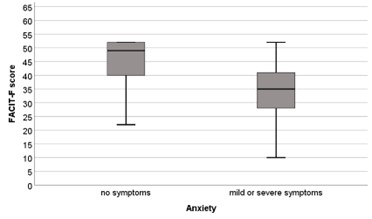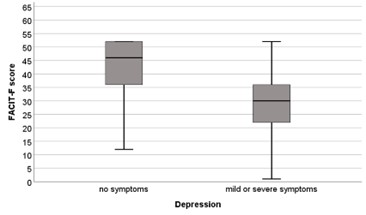Session Information
Session Type: Abstract Session
Session Time: 3:00PM-4:30PM
Background/Purpose: Individuals diagnosed with rheumatic diseases (RD) have an elevated susceptibility to mental health disorders. A study conducted among patients with RD revealed a prevalence of 21.8% for depression and 37% for anxiety. Fatigue is an incapacitating symptom in various RD. A systematic review identified psychological and physical functioning, pain, sleep disturbance, depression, and anxiety as factors associated with fatigue. The presence of psychiatric morbidity in RD has been linked to higher disease activity, increased levels of fatigue, elevated levels of physical disability, inferior treatment outcomes, prolonged time to achieve remission, and compromised health-related quality of life. We aimed to determine the prevalence of symptoms of anxiety or depression and fatigue in patients with RD.
Methods: We conducted an observational cross-sectional study at the outpatient rheumatology clinic of a university hospital from March 2022 to January 2024. Patients ≥18 years old with at least one RD were included. The Hospital Anxiety and Depression Scale (HADS) and The Functional Assessment of Chronic Illness Therapy-Fatigue (FACIT-F) Scale were applied. A score ≥8 on the HADS subscales was indicative of symptoms of anxiety or depression. In FACIT-F there is no cut-off point for fatigue analysis, however, we used a score < 40 to indicate the presence of fatigue.
Results: A total of 1014 patients were evaluated, of which 948 (93.5%) were women with a median age of 52 years (IQR 19). Marital status revealed that 50.1% of patients were married, and 74.3% were homemakers. Educational attainment varied, with 61.2% having a basic education (primary and secondary), and only 13.6% having a bachelor’s degree or higher (Table 1). The most prevalent diagnoses were rheumatoid arthritis (58.9%), systemic lupus erythematosus (13.7%), and osteoarthrosis (6.9%). Two or more rheumatic diseases were in 7% of the patients. Comorbid conditions included systemic arterial hypertension in 33.23% of patients and diabetes mellitus in 19.82%. Symptoms of anxiety were observed in 33.2% of the patients, with 20.6% exhibiting mild symptoms and 12.6% severe symptoms. Depressive symptoms were present in 8.3% of patients, 4.2% experiencing mild symptoms and 4.1% severe symptoms. The coexistence of anxiety and depression was identified in 21.3% of patients. The median FACIT-F score was 45 (IQR 17). Utilizing the established cut-off point, 38.2% of patients were found to have fatigue. A statistically significant difference in FACIT-F scores was observed between individuals with and without anxiety or depression (p=0.000) (Figure 1, 2).
Conclusion: In our study, anxiety was more prevalent than depression. Anxiety symptoms were present in one-third of the patients, while depression symptoms were observed in less than 10% of the cases. Additionally, we found a significant association between fatigue and the presence of anxiety and depression. Patients with RD should receive an integral approach that includes mental health evaluation and treatment because it is likely to impact their disease course.
To cite this abstract in AMA style:
Madrid-Lopez G, Corral-Trujillo M, Diaz-Guerrero A, Mata-Torres L, Galindo Calvillo E, Cardenas-de la Garza J, Hernandez Galarza I, Villarreal-Alarcon M, Galarza-Delgado D. Prevalence of Anxiety, Depression, and Fatigue in Patients with Rheumatic Diseases: A Cross-Sectional Study of 1014 Cases [abstract]. Arthritis Rheumatol. 2024; 76 (suppl 9). https://acrabstracts.org/abstract/prevalence-of-anxiety-depression-and-fatigue-in-patients-with-rheumatic-diseases-a-cross-sectional-study-of-1014-cases/. Accessed .« Back to ACR Convergence 2024
ACR Meeting Abstracts - https://acrabstracts.org/abstract/prevalence-of-anxiety-depression-and-fatigue-in-patients-with-rheumatic-diseases-a-cross-sectional-study-of-1014-cases/



